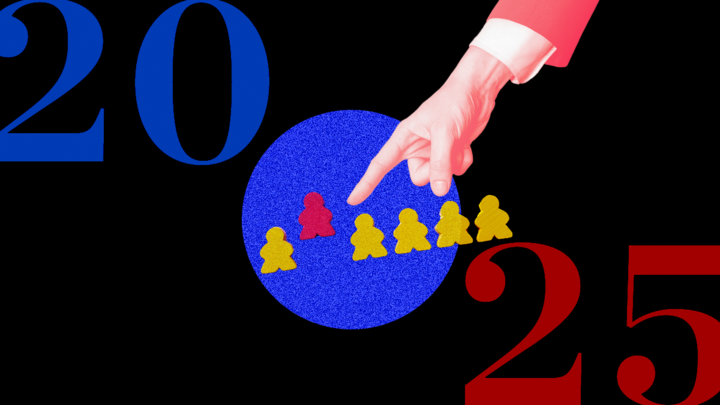Abortion rights, women of color, and LGBTQIA+ people are under attack. Pledge to join us in fighting for gender justice.
Organizations Working to Support Family, Friend and Neighbor Child Care Meet at NWLC


In June, the National Women’s Law Center hosted its annual gathering of organizations that work to support Family, Friend, and Neighbor (FFN) child care providers across the country. FFN providers—generally, are providers who care for children in the provider’s home and who are exempt from state licensing requirements—are an essential option for millions of families who need child care. And the groups that support FFN providers offer important resources and support. The Center’s meeting allows groups to come together to share their successful strategies and challenges in supporting providers.
At the meeting, Gina Adams, Senior Fellow at the Urban Institute discussed the impact of new requirements under the Child Care and Development Block Grant (CCDBG), the major federal child care program, on FFN providers’ ability to participate in the program. Under these new requirements, FFN providers must complete background checks and undergo annual health and safety inspections to serve families receiving child care assistance. Adams noted the importance of focusing more CCDBG resources—which have generally been focused on child care centers—on helping FFN meet these requirements and continue to participate in CCDBG, given that many vulnerable children and families are dependent on FFN care. For families with parents working nontraditional hours, FFN care is often the only option, because few centers or regulated family child care homes provide evening, overnight, or weekend care. Parents with very young children also frequently rely on FFN care because most centers have limited spots for infants and toddlers—and those spots are costly. Many families in rural communities and urban areas, as well, have difficulty finding licensed child care options. And parents of children with special needs often turn to FFN care for the specialized, individual care that their children need and that may not be available elsewhere.
Participants at the meeting described their strategies for supporting FFN providers so that they can continue to offer care to the families who depend on them and improve the quality of care they offer. One of the groups represented at the meeting is All Our Kin, which is doing innovative work to help providers through the regulatory process and support them once they have accomplished this goal. All Our Kin, which is based in Connecticut and has recently expanded its services to the Bronx, has broken down the state’s licensing requirements into a series of “fun steps” in order to make licensing a more accessible option for providers. The organization offers providers an award once they complete a stage. In addition, All Our Kin has incorporated peer-mentoring, with licensed providers advising the FFN providers. The organization also has designed a curriculum about entrepreneurship to offer providers the tools necessary to run a successful family child care business. In addition, All Our Kin has partnered with local organizations and trained providers to be a resource for families on a number of issues, including immigration. By teaming up with nearby legal organizations, they have been able to give providers information about immigration services and supports, which providers can then share with parents.
Another group represented at the Center’s meeting, the Arizona Kith and Kin Project works with providers to help them strengthen the quality of care they offer. The project, developed by the Association for Supportive Child Care, offers FFN providers a 10-week training program that focuses on topics such as child development, nutrition, CPR, and crib safety. Staff members also conduct home visits to assess the providers’ learning environments. After doing so, the staff gives providers a monetary stipend and materials such as books, puzzles, and crayons. Since Arizona FFN providers are an incredibly diverse group, the Kith and Kin Project has focused on hiring staff members that reflect the identity of the communities they serve, including Spanish-speaking staff and staff from the Navajo nation.
With so many children in FFN care, it is essential that states and local communities, as well as private funders, support organizations such as those participating in the Center’s meeting. They are an important component of the building blocks for a strong child care system that meets the child care needs of all families.




